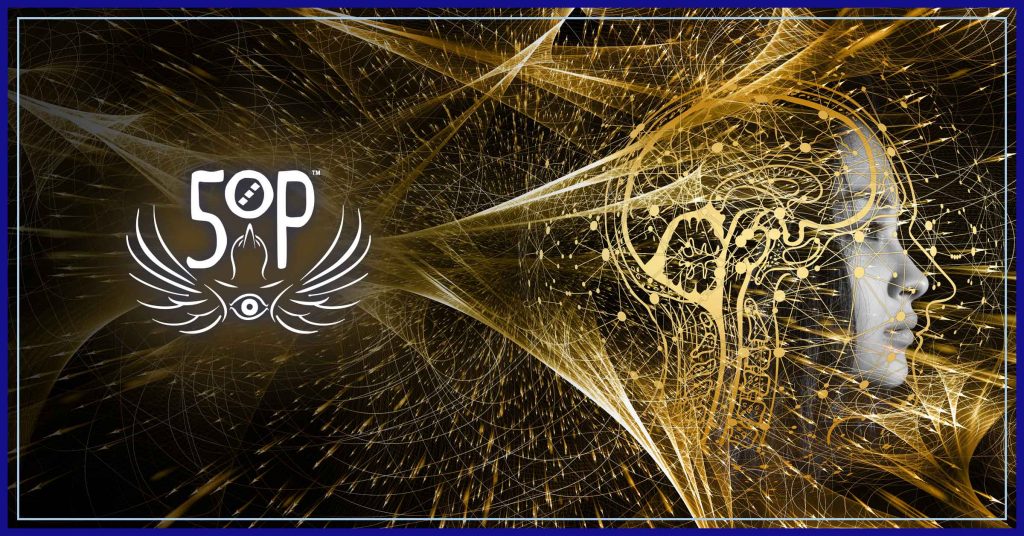
In a world where various media sources constantly hit us with confusing mixtures of fact and sensationalism, it can be extraordinarily easy for our perceptions to be skewed toward distorted versions of reality.
From individual influencers who push viral content, and companies with revenue streams built entirely on consumer engagement, to cultural norms that bind us to our tribes[def], it can be very difficult to see through the blurred lines of multiple (often conflicting) narratives.
This article series will explore the importance of understanding our fantasy enmeshed realities, present examples of how various individuals and institutions bear influence over our personal perceptions, and offer strategies to help us see beyond the blurred lines.
Let’s define two words to begin with:
- Fantasy: the power or process of creating especially unrealistic or improbable mental images in response to psychological need1
- Reality: the quality or state of being real2
By definition these two words are opposites of one another. Interestingly, where reality can exist without fantasy, fantasy cannot exist without reality. Fantasy is simply a product of reality.
Healthy fantasy can be dreamy, creative, fun, sexy, playful, inspiring, exhilarating, meditative, and stress soothing. Fantasizing provides us with opportunities to escape and explore imaginative and innovative perspectives.
However, fantasy can also feed distraction, addictions, delusions, and human divisions. It’s circumstances like these when our fantasy enmeshed realities mislead us.
So what, foundationally, can cause us to take fantasy too far?
Fear
Our world is saturated with conflict of our own creation. Whether it be something as blatant and extreme as front-line warfare, or as internalized and minor as how we may feel when someone is walking up behind us too closely on the sidewalk, the conflicts we create for ourselves as a species breed fear.
“Fear is an emotion induced by perceived danger or threat, which causes physiological changes and ultimately behavioral changes, such as fleeing, hiding, or freezing from perceived traumatic events. Fear in human beings may occur in response to a certain stimulus occurring in the present, or in anticipation or expectation of a future threat perceived as a risk to oneself.”3
A study by Chapman University found that, “Having a low level of education or watching talk- or true-crime TV was associated with harboring the most types of fear. Despite the fact that crime rates have decreased over the past 20 years, most Americans, the survey found, think all types of crime have become more prevalent.”
“Fear of things that might actually hurt us, like the flu or smoking, is understandable and healthy. It’s the phobia of things—snakes, sharks, the youth—that pose virtually no threat at all that’s more puzzling. (The last shark attack death in the continental U.S. was in 2012 [as of 2014 when this article was written]. Meanwhile, 30,000 people die in car accidents every year). Even in 2013, people thought more frequently about the possibility of a terror attack in the U.S. than they did about the prospect of their own hospitalization.”4
Dr. Matt James presents “6 Signs That Fear is Holding You Back.”:5
- Fear sees only the downside
- Fear doesn’t let you stop to think it through
- Fear tells us to avoid anything new or unknown
- Fear constricts rather than expands who we are
- Fear obscures your intuition
- Fear often keeps us from making any decision at all
Fear of other people, at least in present context, is ingrained through social conditioning, which often starts when we’re young… instigated by those who’ve had influence over us and taught us to distrust, subvert, and/or hate others.
The irrational side of fear and phobia can cause us to think that we’re perfectly rational, and that the world at large is corrupted, when in actuality, the corruption predominately lies within the minds of us, the beholders.
The bottom line… Fear can render us less likely to have the necessary tools needed to efficiently navigate reality. It feeds fantasy.
Poor upbringing
In the past article, It’s about ALL of us, I stated, “We don’t get to choose where we start life. We don’t get to select our bodies or brains. We don’t get to pick our families. As youngsters we are swayed by influencers who are selected by circumstance, some good, some bad.”
There are all sorts of foundational abuses that we can be subjected to during our upbringing, which bear influence over our perceptions of reality… physical abuse, sexual abuse, mental and emotional abuse, exploitation, neglect, and abandonment are some examples.6
Dr. Tian Dayton, Clinical Psychologist and author, writes “Children come into this world only partially hardwired by nature, nurture does the rest. Each tiny interaction between parent and child actually lays down the neural networks that help us to experience and regulate our emotions… Stress during childhood -- when we have not yet developed to maturity -- has a stronger affect than at other times in life… Distorted childhood interpretations of life and relationships sink like stones into the unconscious, where they may fertilize negative self-concepts and problematic dynamics of relating that follow them through life… Children who repeatedly find themselves in these situations learn some bad lessons and they miss learning some of the good ones… Years of this can mean that a child moves through their developmental stages carrying fear and angst, around which they build defensive walls.”7
“Survivors [of abuse] who are mentally ill do not reference their fantasies and instead act on them, expecting others to respond to unrealistic wishes and perceptions. Within families, these individuals create atmospheres that are deeply destructive, frightening, and emotionally labile[def] because the behavior they demonstrate has insufficient basis in reality… Unhealthy families perpetuate the survivor's fantasy,” suggests Clinical Psychologist Dr. Scott Hass.8
Poor upbringing can also create unrealistic expectations and delusions of grandeur, which are wildly unrealistic and damaging, particularly for those in the higher classes of society. Pretty sure that speaks for itself… Grandeur is abuse in sheep’s clothing.
The bottom line… Growing up in an abusive, disruptive, and/or unrealistic environment can render[def] us less likely to have the necessary tools needed to efficiently navigate reality. It feeds fantasy.
If you or a loved one is falling victim to abuse, or potential self-harm, there are MANY resources out there that can help, even if you’re under the age of 18. Here are a few links to find help in the United States…
Stress, anxiety, depression & other mental disorders
To begin with, here are some quick stats regarding stress:9
- Over 43% of all adults suffer adverse health effects from stress
- Somewhere between 75% to 90% of all physician office visits are for stress-related ailments and complaints
- Stress is linked to the six leading causes of death: heart disease, cancer, lung ailments, accidents, cirrhosis of the liver, and suicide
- The Occupational Safety and Health Administration [OSHA] has declared stress a hazard of the workplace
The National Institute of Mental Health points out that “40 million adults in the US are affected by anxiety, and millions more are afflicted with depression-related disorders. Overall… 18% of all adults have some form of mental illness.”10
“Anxiety disorders all produce their own distorted reality, both as a symptom and as a function of what anxiety really is… Most people with anxiety don't realize how often anxiety is distorting their mindset. That's because the human brain and cognition are more complicated than it seems. Anxiety changes the chemical messenger levels in your brain, and when it does it causes your mind to perceive things differently, even though it feels entirely natural for you,” suggests Dr. Faiq Shaikh, clinical physician & researcher.11
Psychology Today states, with regard to fantasies being dangerous, “In certain mental health disorders, such as delusional disorder and schizophrenia, fantasies can be mistaken for reality and trigger paranoia or dangerous behavior. Even in cases in which the individual knows their fantasies aren’t real, they can still become intrusive and cause an individual significant distress.”12
Other mental disorders, in addition to schizophrenia, can cause expanded distortions of reality. Such disorders include:
- Major Depressive Disorder
- Fantasy Prone Personality
- Psychosis
- Narcissistic Personality Disorder
- Sociopathy
The bottom line… Stress, anxiety, depression and mental disorders can render us less likely to have the necessary tools needed to efficiently navigate reality. Related complications can do lasting physical and mental damage if gone unchecked. They feed fantasy.
To wrap things up
So far in this first article of the series “Our Fantasy Enmeshed Realities,” we’ve outlined a framework for understanding how fantasy plays a role in our everyday existence, and identified three foundational factors that drive our perceptions of reality: Upbringing; Fear; and Stress, anxiety, depression & other mental disorders.
Understanding foundational factors associated with fantasy might not be the most exciting part of the fantasy discussion, but it’s important because it reveals how widespread delusional thinking can be.
Further, in order to “recover” humanity from any glitch, you have to see all sides of the issue in order to address it holistically[def]. Foundational understanding is key.
The next article will discuss a few more foundational factors. From there we’ll look into how certain influencers bend our perceptions and drive fantastical thinking.
Please feel free to offer your comments below, and share this article if you will.
Thank you always for your support!
ALL articles in this series:
Our Fantasy Enmeshed Realities (part 1 of 4)... Intro
Our Fantasy Enmeshed Realities (part 2 of 4)... More Foundational Contributors to Fantasy
3 ways our antiquated instincts are killing us (part 3 of 4) - Coming Soon!
3 ways our antiquated instincts are killing us (part 4 of 4) - Coming Soon!
Citations:
- “Definition of FANTASY.” Merriam-Webster.Com, 2020, www.merriam-webster.com/dictionary/fantasy. Accessed 29 May 2020.
- “Definition of REALITY.” Merriam-Webster.Com, 2020, www.merriam-webster.com/dictionary/reality. Accessed 29 May 2020.
- Wikipedia Contributors. “Fear.” Wikipedia, Wikimedia Foundation, 3 June 2020, en.wikipedia.org/wiki/Fear. Accessed 26 June 2020.
- Khazan, Olga. The Atlantic, The Atlantic, 31 Oct. 2014, www.theatlantic.com/health/archive/2014/10/the-psychology-of-irrational-fear/382080/. Accessed 2 July 2020.
- “6 Signs That Fear Is Holding You Back.” Psychology Today, 2015, www.psychologytoday.com/us/blog/focus-forgiveness/201505/6-signs-fear-is-holding-you-back. Accessed 2 July 2020.
- “Types and Signs of Abuse | DSHS.” Wa.Gov, 2012, www.dshs.wa.gov/altsa/home-and-community-services/types-and-signs-abuse. Accessed 23 June 2020.
- Dr. Tian Dayton. “Growing Up Scared: What We Learn When Our Family Does Not Teach Us Good Emotional Balance.” HuffPost, HuffPost, 29 Apr. 2008, www.huffpost.com/entry/growing-up-scared-what-we_b_99206. Accessed 26 June 2020.
- “Trauma, Resilience, and Fantasy.” Psychology Today, 2015, www.psychologytoday.com/us/blog/shrink-in-the-kitchen/201511/trauma-resilience-and-fantasy. Accessed 25 June 2020.
- Nesse, Randolph M, and Elizabeth A Young. “Evolutionary Origins and Functions of the Stress Response.” 2000. http://www-personal.umich.edu/~nesse/Articles/Stress&Evolution-2000.PDF Accessed 14 Feb. 2020.
- “5 Sources of Stress and Anxiety in the Modern World.” Psychology Today, 2017, www.psychologytoday.com/us/blog/clear-organized-and-motivated/201703/5-sources-stress-and-anxiety-in-the-modern-world. Accessed 14 Feb. 2020.
- “How Anxiety Can Cause Distorted Reality.” Calmclinic.Com, 2018, www.calmclinic.com/anxiety/symptoms/distorted-reality. Accessed 2 July 2020.
- “Fantasies | Psychology Today.” Psychologytoday.Com, 2019, www.psychologytoday.com/us/basics/fantasies. Accessed 23 June 2020.

With PromptScroll, experience the forefront of AI technology, offering the same sophisticated capabilities as ChatGPT for just $9 a month. It’s not just an AI solution; it’s an investment in endless possibilities.